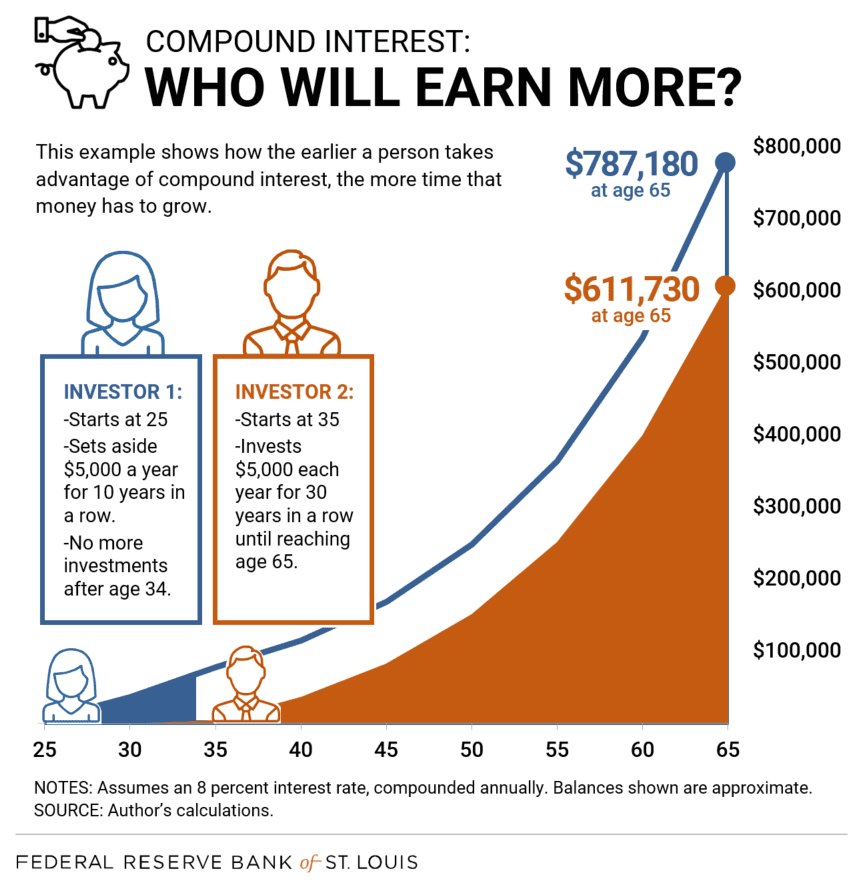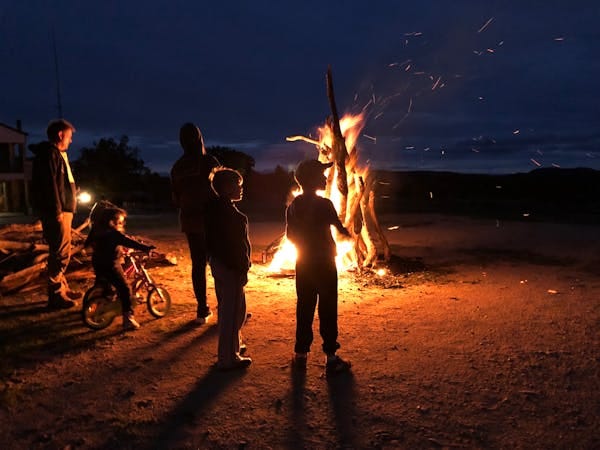Imagine you were offered a trip of a lifetime. 3 years to see the world. All expenses paid. Would you take it?
A few months ago my co-author (Jason) and I found ourselves intrigued with a thought experiment. Here is the scenario:
Today an acquaintance called you up with an amazing opportunity to join them on their sailboat and travel the globe for 3 years, seeing most of the countries in the world. There is no cost to you (and if you have a spouse/kids you can bring them), but due to the travel schedule you can’t have a job or spend time with your friends during the 3 year trip.Would you go? (Yes or No)
We’ve discussed and surveyed hundreds of people with this question, and perhaps the most surprising result has been the enormous divide of opinions on this. In retrospect I’ve realized that shouldn’t be too shocking. This “dream trip” scenario seems simple on the surface, but in actuality it has a great deal of nuance, especially when you start to think through the reality of taking 3 years out of your life to do something of this magnitude.
I rarely disagree with Jason on much, but we also found ourselves on opposite ends of the aisle here. A few weeks back, Jason wrote a very well reasoned argument against taking the trip. It’s persuasive, and there are some arguments that I’m fully in agreement with (ex: how the romantic notion of global travel contrasts with the reality of cramped sailboats, monotony, and homesickness).
But I think Jason’s arguments overlook 4 very important points; ones that are important enough that I would personally be willing to pack my family up for 3 years and set sail. So today, I offer a rebuttal. An argument FOR taking the trip of a lifetime…

First, the Bad…
Before we start, let me acknowledge something. Strategy is the art of making tradeoffs. It is the willingness to sacrifice X, so that you may obtain Y. This principle holds true of all strategic decisions, whether it’s a business decision, a military action, or a life choice. As economist Thomas Sowell once said “there are no solutions, there are only trade offs”. There are very few instances in life where you get all benefits but no drawbacks. Choices have costs, and the costs are always real.
In this case of our trip, there are some real sacrifices you will have to make.
- Your career could be derailed (or dramatically slowed) by a 3-year hiatus, as anyone who has tried to break back into the workforce after taking a few years off for illness, school, or child-rearing can attest!
- Your children’s social network could suffer from being gone for so long. For example, In 2021 my sister left to live in Peru with my parents during her junior year of high school. When she returned for her senior year, reintegrating into the social scene after a year away was extremely hard… people had moved on and formed new friendships and experiences without her. Without that shared year she felt extremely isolated from the group that had formerly been her friends.
- Your “weak tie” relationships (ex: your extended family, friends, and acquaintances) may suffer. Those closest to you will still love you, but can you really say the same for your extended network? This actually has spillover effects on your career too, as multiple studies have shown that the strength of your “weak tie” relationships are more beneficial for employment opportunities, promotions, and wages than strong (deep) ties are.
- People are meant to have a “home” – a long term base. Without it we start to feel unmoored in life. 3 years is about the limit of what I personally could handle being a nomad. If it were longer I would heavily advise against taking this trip.
These costs are real and painful. And they shouldn’t be taken lightly and without deep consideration. But despite this I want to argue that you still need to pack your things, take a deep breath, and take the plunge.
The case FOR the trip…
#1 Life is far, far too short
Perhaps the biggest argument against doing anything as bold and audacious as dropping everything to go on a 3-year adventure is the idea that it’s not practical – career interruptions, education disruptions, and disconnecting from relationships are all commonly cited risks. There is a reason that you don’t see most people take these kinds of leaps.
People (despite our differences) actually have pretty similar lives when you zoom out. We go to school when we’re young, get married (hopefully), raise kids (also hopefully), build our careers, save for retirement, and then use our “golden years” to enjoy some well earned comforts. That’s the script.
Here’s the problem with the script: Too many people think they’ll “live their dream” once they’ve done all of the above, but those days often never come.
The reasons for this are obvious: We get busy. We get old and don’t have the energy anymore. Sometimes, tragically, life gets unexpectedly cut short. If we are honest with ourselves we all know that most of the items on our bucket list are things that we won’t actually do because they’re just not “practical”. There are far too many people I know who never did write that book, go on that dream vacation, or build that dream house. Their reasons for not doing so were always logical. But that doesn’t stop it from being tragic.
The reality is that it is our sins of omission, not our sins of commission that will cause the greatest regrets in the end. As author Mark Batterson once said:
“At the end of your life, your greatest regret won’t be the things you did, but wish you hadn’t. Your greatest regret will be all the things you didn’t do, but wish you had. It’s the ‘what if’ dreams that we never act upon that turn in ‘if only’ regrets”
As an important side note: you will be able to do so much more when you’re younger than when you’re older. This is one of the things that people don’t think about when they decide to delay travel until they’re in their “golden years”. Walking the Spanish Steps of Rome or hiking the trails to Machu Picchu feels a lot more different when you’re 35 vs. when you’re 75. The risk of delaying meaningful experiences in pursuit of practical things like financial security is that you’ll find you actually lack the health or energy to enjoy them “when the time is finally right”. There’s something very sad about that.
Realizing a dream is similar to the decision to have a child. There is never a convenient time to do so. So you just have to take the plunge and do it. Your older self will bless you for that choice.
#2 Experience Dividends are real…
I came across the concept of an experience dividend when I read “Die with Zero” (by Bill Perkins). The idea is pretty interesting. Think of your life experiences paying interest over time, the same way that money does.
We all know that it is best to invest money early in order to maximize the “time value of money” (the longer our money has to grow, the more we’ll benefit from compounding interest). This is why someone who invests $1K when they’re 20 is far better off than someone who invests $1K when they’re 30. Those early investments continue to pay off long, long after the initial deposit is made. And the earlier the deposit, the greater the payoff down the road.

An example of how investing early pays off financially. The same is true of investing in our experiences. (Source: Federal Bank of St. Louis)
Memories of experiences are much the same. Something I’ve noticed whenever I get together with my family or my closest friends: we spend much of our time laughing talking about experiences we shared together years ago. The actual experience itself has long since passed, but we derive almost as much (if not more) enjoyment from the memory of such experiences. The experiences “dividend” comes in the form of reminiscing, storytelling, and the warmth of those memories, making them an investment that keeps paying off over time.
Imagine how much you and your children will talk about these 3 years seeing the world for the rest of your lives. Why wouldn’t you want to be able to enjoy those memories for 40-50 years instead of only for 10-20?
This is why the time to invest in experiences (like this trip) is now. As they say in finance “the best time to invest was 10 years ago. The second best time to invest is right now”.
#3) This is an investment in your family
Nothing matters to me more personally than building strong, loving ties with my family. My wife and kids are my greatest source of happiness. Don’t get me wrong. I really enjoy spending time with my friends, extended family, and even co-workers, but they are no replacement for my immediate family.
One of the greatest ways to build those loving ties is to share deep experiences together. Think of how your relationship with your spouse + kids would change by spending 3 years with primarily just them? Even the boring aspects of the trip (like having to be on the water for long stretches) would afford opportunities to talk – really talk, in ways that normal life often prevents us from doing.
A second investment is the education you (and especially your kids) would gain. People often talk about how important it is to them to make sure their kids have a good education. A fortunate few are able to invest significantly into things like private schools, tutors, etc to open their children’s minds about the world. You know what’s better than just reading about the world? Actually seeing it.
I spent 2 years as a missionary for my church living in Ghana, West Africa. That experience had a profound shaping of my life in ways that are difficult to describe to people who have never ventured too far from their hometowns. I see and understand the world differently in ways I never did before.
Travel has that effect on people. It is perhaps the ultimate tutor. As Mark Twain once said:
“Travel is fatal to prejudice, bigotry, and narrow-mindedness”
Just imagine how 3 years of seeing ~100 countries, cultures, foods, sights, historical events, languages, etc. would have on you and your family. You would become well-rounded in ways that people pay thousands and thousands of dollars for in private education in an attempt to gain.
#4) You can finally live in the present
Have you noticed that life is no longer “boring”? I remember being younger and having to wait in lines at places like the airport or bank. There was nothing to do other than sit there and be alone with your thoughts.
Now? Constant entertainment is at our fingertips. It’s a swipe away on your smartphone, a few clicks away on your computer, or a push of a button on your video game console.
On a surface level, that seems like a good thing. But when was the last time you paid attention to the “wind on your face” or the “smell of the sea”? When was the last time you went outside and just looked up at the stars or listened to a story by a fireplace?

These are the micro experiences that make us human. And in our day-to-day lives we can’t get enough of them. However, getting away for 3 years (ideally without too many digital distractions, work pressures, or even social obligations)? There may be no more perfect setting than to enjoy life as it is happening right now. As the Buddha once said “Be where you are, otherwise you will miss your life.”
Conclusion
I can’t deny that taking a trip of this magnitude will take sacrifice. All strategic decisions are that way. But the costs of forgoing it… those well exceed the benefits of choosing to stay.
Life is far too short to pass on our dreams. We have only “one wild and precious life” and it’s up to us to maximize it here and now. Even if that means (temporarily) giving up everything we’ve been working on for the past several decades.
The good news though? The trip is only for 3 years. Things will still be here when you get back. They may be different. But they will still be where you left them. And that matters, because deep down, as much as travel changes and transforms us, we all need home. But home itself becomes much more valuable when you’ve been away for a while. Like Samwise Gamgee in the Lord of the Rings, we don’t fully appreciate the beauty of the Shire until we’ve seen the rest of the wide world.
Get on the boat.


